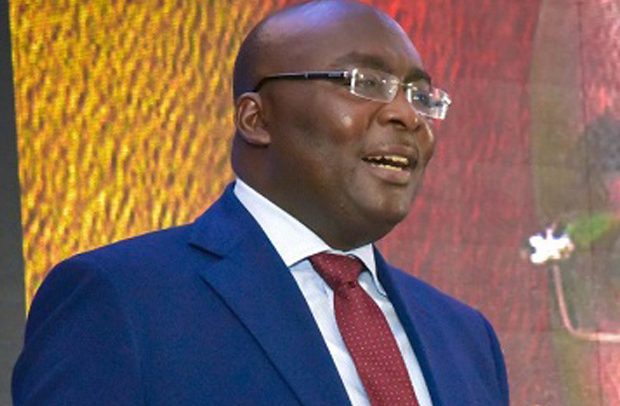Vice-President Dr. Mahamudu Bawumia
Vice-President Dr. Mahamudu Bawumia says the double-track system associated with free secondary school education (Free SHS) will soon come to an end.
The two-stream system (Gold and Green tracks) was introduced by the government to enable various senior high schools in Ghana to take in more students and ensure that all Ghanaian students have access to a senior high school education.
It was introduced after the country saw a surge in secondary enrolment by 400,000 annually following the Free SHS which started in 2017.
But speaking at this year’s President’s Independence Day Awards in Accra yesterday, Dr. Bawumia parried the argument and said the government was working around the clock to phase out the system.
“By implementing the double-track system, we are able to ensure that we make the best possible use of the space and resources available to us in our schools throughout the year and that schools that operate the double-track system have increased their Form One intake by up to 50% of their usual Form One capacity,” he pointed out.
Aside from that, he said “students are placed on either of two tracks – the Green and Gold tracks. Children from disadvantaged backgrounds who otherwise would have had difficulty getting into our elite SHS now have a better chance of doing so, with the increase in enrolment.”
With the rapid infrastructural development taking place in almost all senior high schools across the country, the Vice-President said it would bring an end to the double-track system.
So far, a considerable number of schools have ended the double-track system following the expansion of facilities there.
According to Dr. Bawumia, “that was why in the three years immediately preceding the 2017/18 academic year, the total number of students enrolled in our senior high schools was a little over 800,000. We have, therefore, witnessed a phenomenal rise in over 400,000 more students accessing senior high school education.”
In view of that, he said “Free SHS is not all about access, because access on its own cannot guarantee quality education, which is what we all want in the end. Beyond improving access, government is committed to ensuring quality, relevant education that will produce confident, skilled global citizens ready and able to compete with their counterparts anywhere in the world.”
Dr. Bawumia thanked Nestle for its continued support for the past 30 years.
He expressed profound gratitude to teachers for their effort in developing these potentials whilst pledging government’s unwavering resolve to develop human capital through education.
On his part, the Minister of State in charge of Tertiary Education, Professor Kwasi Yankah, touted the various interventions put in place by the Akufo-Addo administration, which have enhanced education at all levels from basic to tertiary education.
The Managing Director of Nestle Ghana, Philomena Tan, promised the company’s continued support to nurture and develop young talents into champions.
By Charles Takyi-Boadu, Presidential Correspondent


